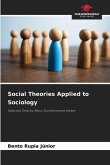Bachelor Thesis from the year 2020 in the subject Sociology - Culture, Technology, Peoples / Nations, grade: 1, Vienna University of Economics and Business , language: English, abstract: This thesis aims to review and synthesise existing journal articles investigating the intersection of culture and institutions to answer the question of how and in which areas theory of culture and institutions have together been applied. In the form of a systematic literature review, we include articles that were divided into one of eight categories, namely economics; historical events and development; public sector; sociology and gender studies; international business; corporate governance; ethics, CSR and reputation; and finance. Over the last few decades, an increasing scholarly interest in the topics of culture and institutions has developed and led to a stark rise in published related work. Especially since the early 2000s, the two topics have gained significant ground in a variety of academic disciplines and caused an increase of available literature, which is also confirmed by the results of our search process. Cultural or institutional theory fits into several scientific fields ranging from psychology and sociology to law and economics. Views on culture and institutions vastly differ. While some academics see them primarily as endogenous, others perceive them as exogenously given and representing the equilibrium of a game. Bowles (1998), on the contrary, views them as exogenous too, although they lead to the creation of endogenous preferences in society. A change of cultural and institutional settings, however, can be both exogenous and endogenous. In addition, research is also still not completely conclusive about which and how variables affect the formation of culture and institutions. Likely effects stem from geographic factors, language, education, war, pandemics and available technology, amongst others. On the other hand, theory of new institutional economics highlights the implication of path dependence for both concepts. Path dependence suggests that history matters for current and future decisions and potential outcomes. Similarly, random events, in contrast to systematic forces, can have significant impacts. It so implies a certain lock-in effect created by prior events which can figuratively speaking, make it challenging to leave an already adopted path even if there exist superior ones. Also, because culture and institutions interact, they create space for multiple stable outcomes.
Hinweis: Dieser Artikel kann nur an eine deutsche Lieferadresse ausgeliefert werden.
Hinweis: Dieser Artikel kann nur an eine deutsche Lieferadresse ausgeliefert werden.








